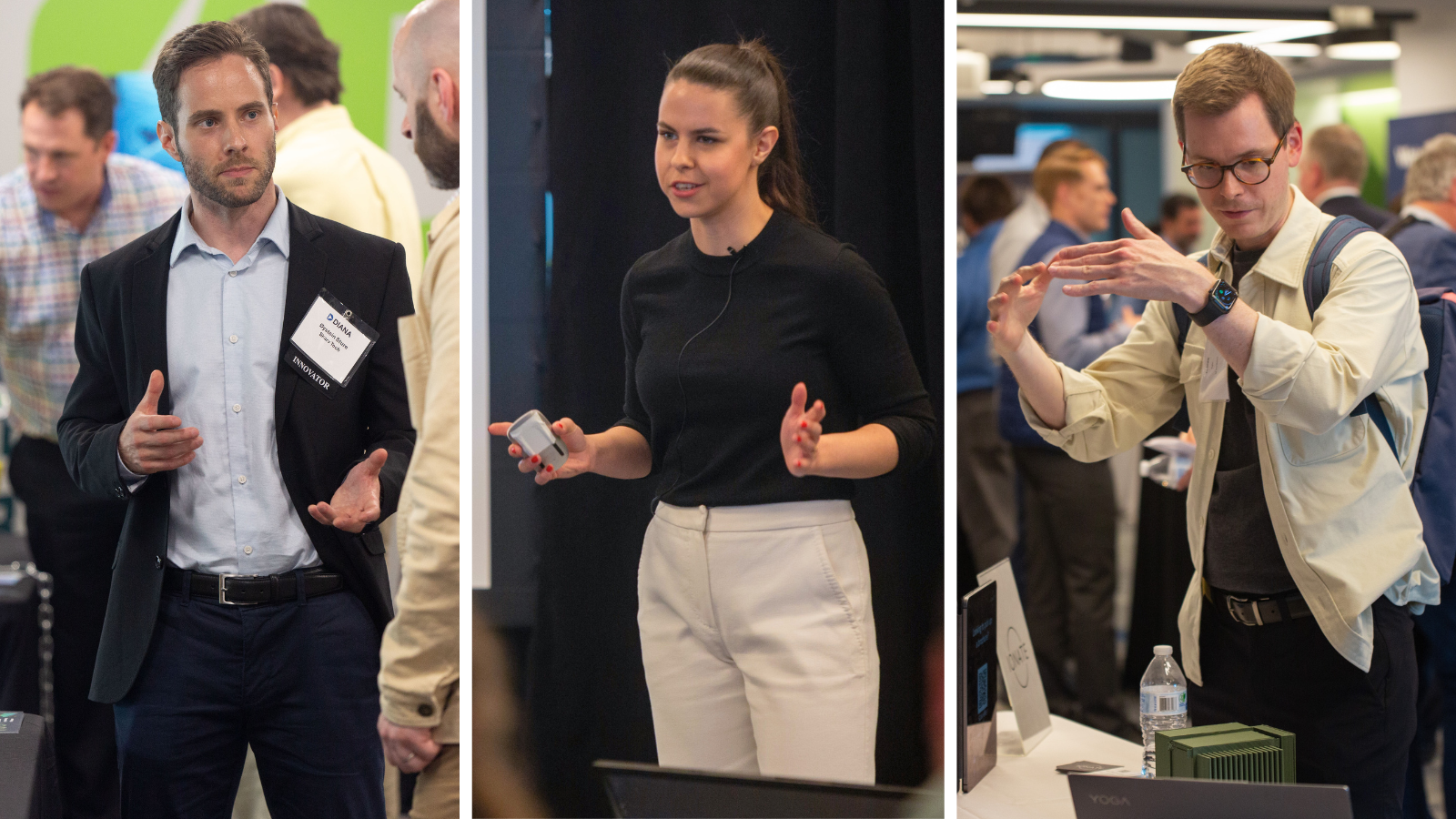
Startups Demonstrate Deep Tech Innovations for NATO Alliance

Twenty-one startups shared their technologies for energy resilience, secure information sharing, and sensing and surveillance with the potential to address key security challenges including climate change, resource scarcity, economic instability, and threats from hostile actors during the NATO DIANA North American Demo Days.
During the Demo Days, a culmination of the NSIN-supported NATO DIANA program, teams shared dual-use technologies in their pitches to representatives from venture capital firms, the government, industry, and academia and vied for spots in the DIANA ‘Grow’ program, which provides six months of additional, tailored support and grant funding.
“The Demo Days allowed these teams to cap off six months of hard work and make further connections with potential partners,” shared Jeffry “Mando” Waye, NSIN Propel Program Manager. “Many of these companies have already created strong networks through the cohort programming, so we are excited to see them hit the ground running.”
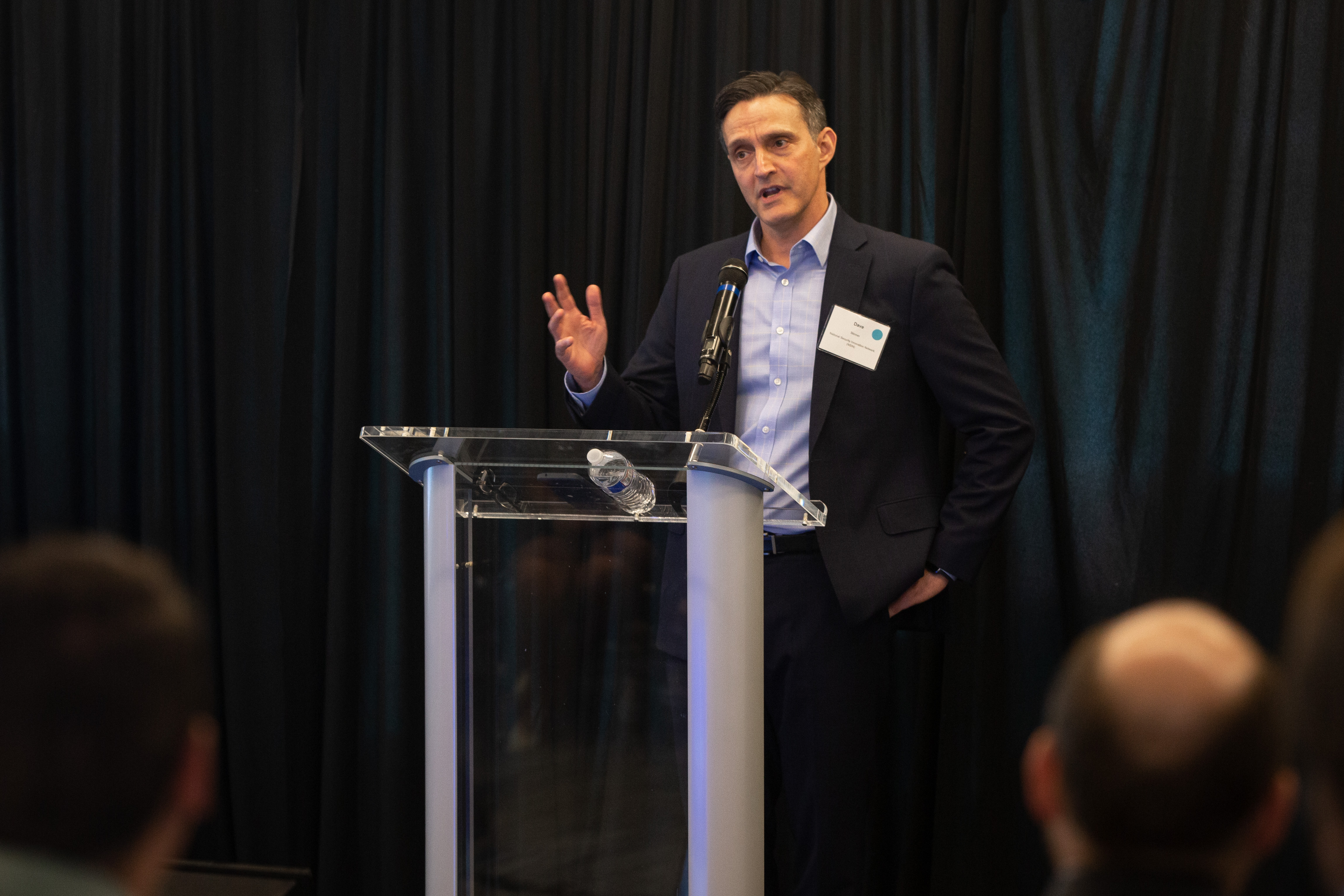
NSIN Northeast Regional Director David Skinner shared his excitement for the collaboration between NATO DIANA, DIU, and NSIN at the Boston Demo Day saying, "NSIN and DIU share a vision with NATO DIANA, and its mission to locate and accelerate dual-use innovation across the NATO alliance."
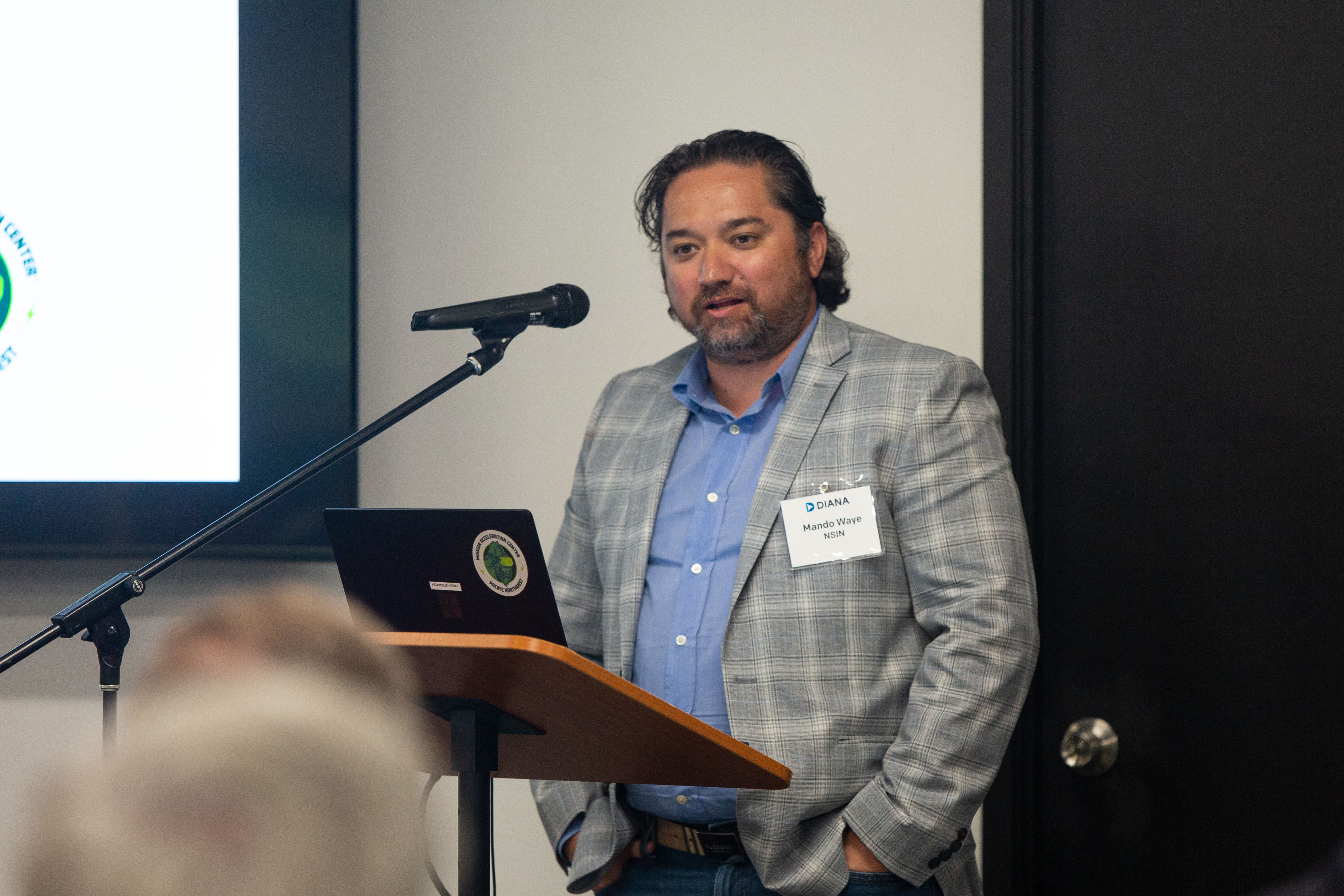
NSIN Propel Program Manager Jeffry “Mando” Waye welcomed the cohort and acknowledged their progress over the course of the program in his opening remarks at the Seattle Demo Day.
As part of the DIANA program, teams received €100,000 each, accessed mentorship from procurement professionals, end-users, and industry experts, engaged in customer and market exploration, underwent technology development and testing, met with trusted investors, including the NATO Innovation Fund (NIF), and received support for intellectual property protection, cybersecurity, and risk mitigation.
For the startups, the program provided a roadmap into the Department of Defense (DoD) and other NATO Alliance governments. Derek Neufeld, the Chief Technology Officer of AquaGen, a company that harnesses energy potential in slow moving waterways to provide power in austere environments and to unserved populations, shared that he had tried to make connections with defense agencies in the U.S. and the U.K. after seeing solicitations for technologies like AquaGen’s. As a Canadian company, however, they were ineligible for the opportunities he was finding. NATO DIANA helped AquaGen turn a corner and gain traction in the U.S., especially.
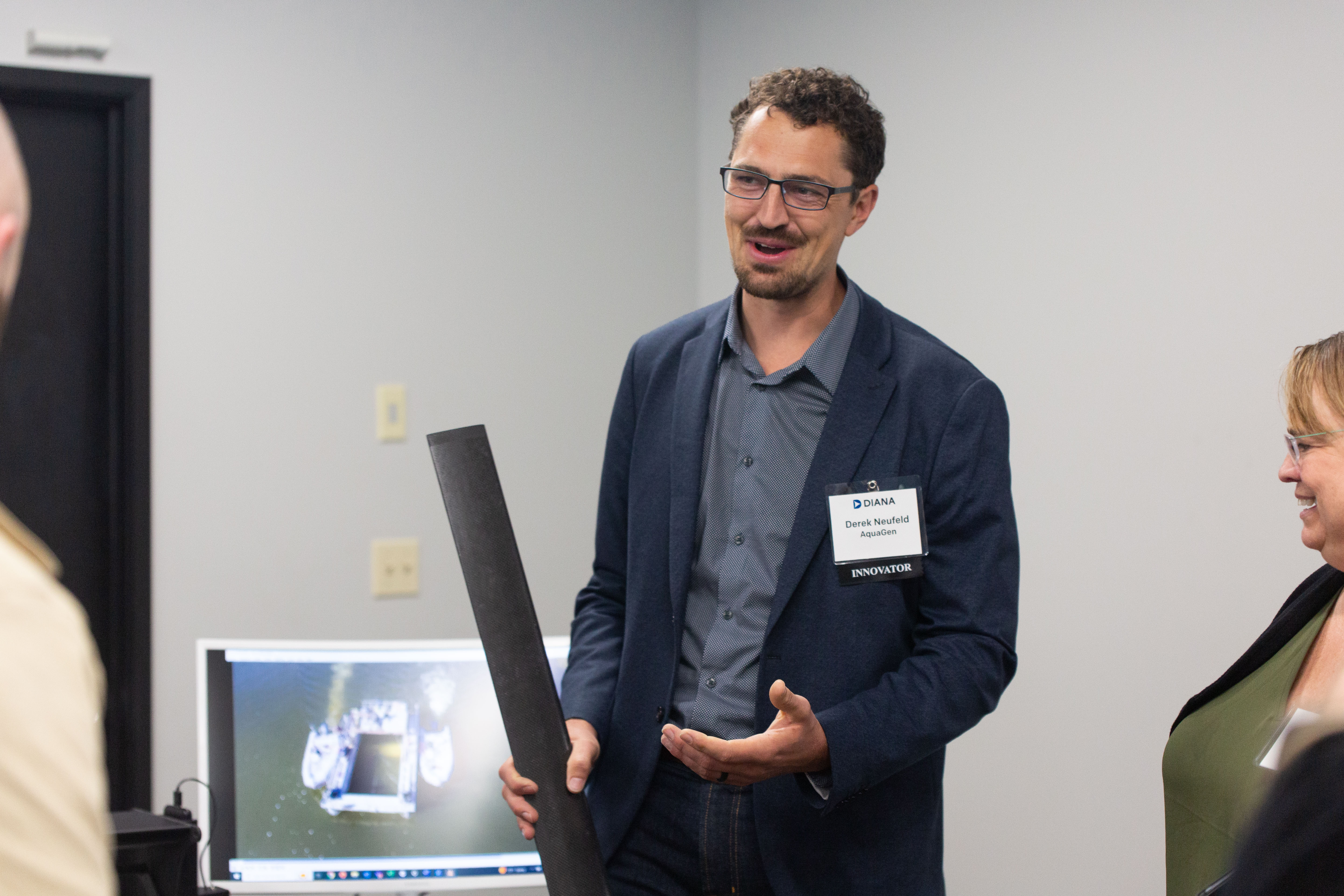
Derek Neufeld, the Chief Technology Officer of AquaGen, shared his company’s technology with attendees including government representatives and potential partners, customers, and investors.
“The DIANA program was this really cool opportunity I saw to get in front of all of the [NATO member state] militaries and say, ‘look, hey, somebody put out this demand signal. I've got what you were looking for,’” shared Derek.
For AquaGen, meeting that demand signal was just the first part of their journey. The mentorship and connections helped them seize on the opportunity with DIANA to make real connections with the DoD and the Canadian Department of National Defence.
Many other companies not only found value in connections to private partners and governments, but also found value in the connections they made amongst their peers within the cohort.
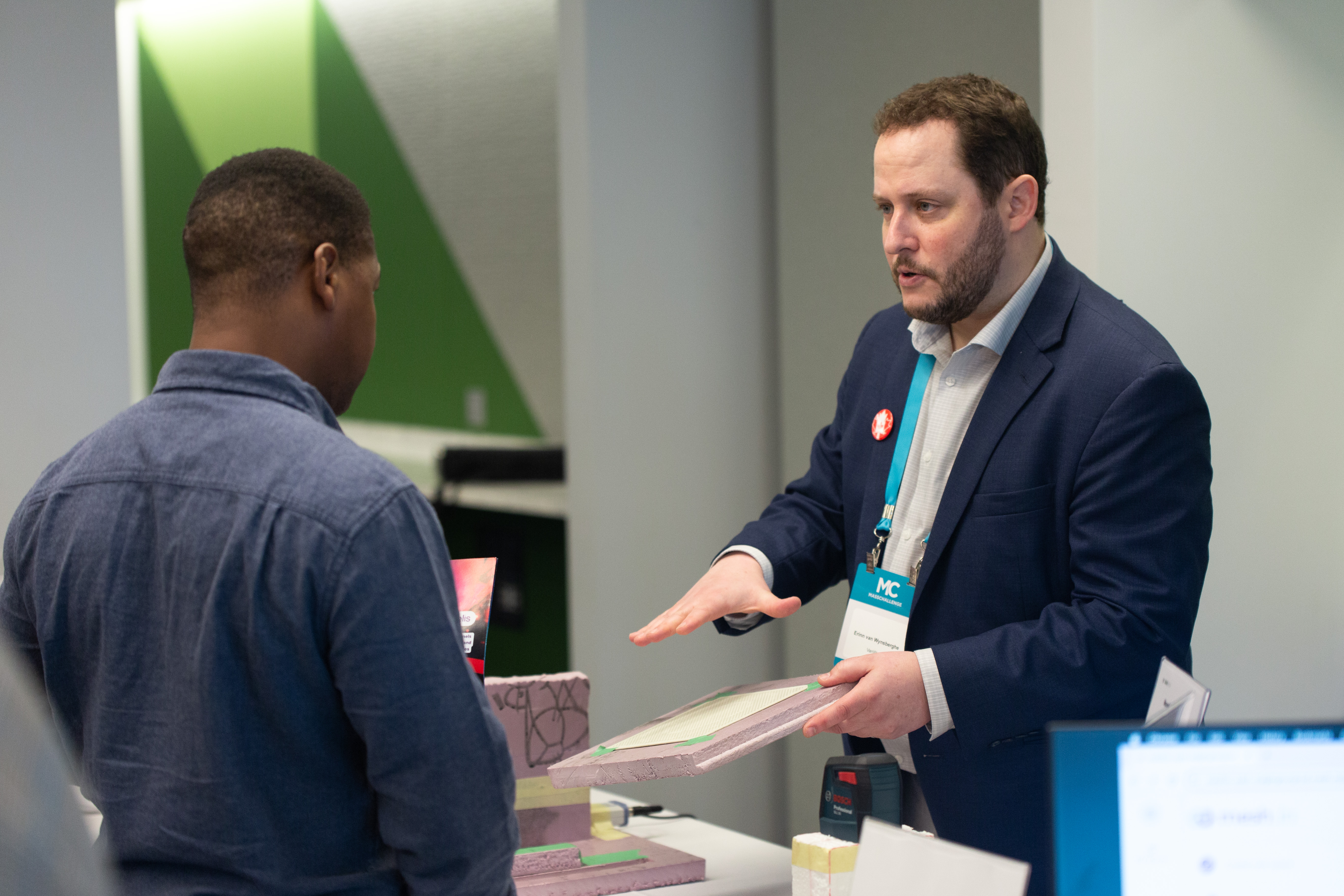
Erinn van Wynsberghe, CEO of VanWyn shared his technology with an attendee. He said that his company made many valuable connections in the cohort, including to a fellow cohort member, Grayscale AI.
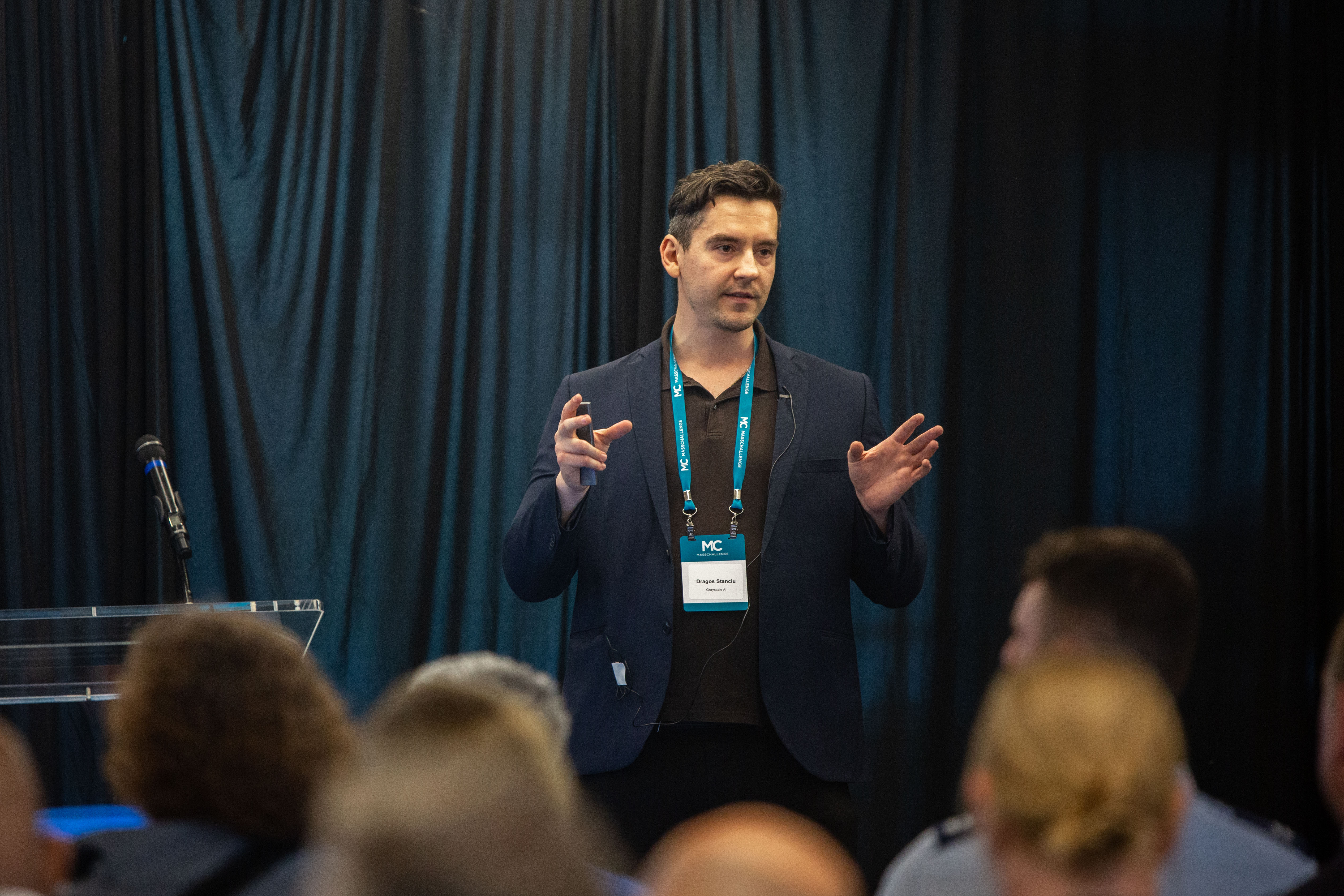
Dragos Stanciu, CEO of Grayscale AI presented his pitch at the Boston Demo Day. He shared that the connection to VanWyn was just one important benefit the DIANA program had for his company. Grayscale AI was also able to find opportunities like an upcoming technical experimentation that they are participating in the United States Special Operations Command (USSOCOM).
In Boston, VanWyn and Grayscale AI spoke about how their technologies for a radio transmitter with a narrow beam that is undetectable by enemies and for ultra-energy-efficient artificial intelligence (AI) powered by neuromorphic computing could be leveraged together for applications like quickly identifying and defeating sarms of drones.
Erinn van Wynsberghe, CEO of VanWyn, shared that the connection to his fellow cohort members has not been the only boon for his business, “the most valuable [aspect of the cohort] to my company has been the introductions, and its introductions with the clout of the NATO name. We are getting introduced to people that we otherwise wouldn't have been able to find, let alone meet. And those introductions are coming with the credibility of NATO's vetting.”
In Seattle, similar connections were made amongst startups Dolphin Labs, SEADAR, and Skarv Technologies. The companies, who realized that their complementary technologies could be leveraged together to monitor and counter threats to ocean-based critical infrastructure and natural resources, solidified their relationship with a Memorandum of Understanding (MOU) amongst their companies, which they signed at the event. Through the MOU, the companies agreed to leverage their respective technologies with Dolphin Labs providing their persistent, renewable power from waves, SEADAR providing continuous, coordinated surveillance and detects conductive materials throughout the water column, and Skarv providing optical seabed mapping, enabling near-real time, high-resolution imagery of the seabed.
Regarding the teams’ collaboration, Rolle Hogan, CEO and Co-Founder of Dolphin Labs shared that the companies’ similar technologies and maturity level were just the jumping off point, “What's important is having companies that you can collaborate with, that you can do business with and who have similar objectives, priorities, and values. We found that with SEADAR and Skarv, we were all aligned on that front. The Memorandum of Understanding is designed to create a collaboration that we can then take to end users as an integrated end to end solution. Not just part of the solution, but the entire solution that the end user can put to work.”
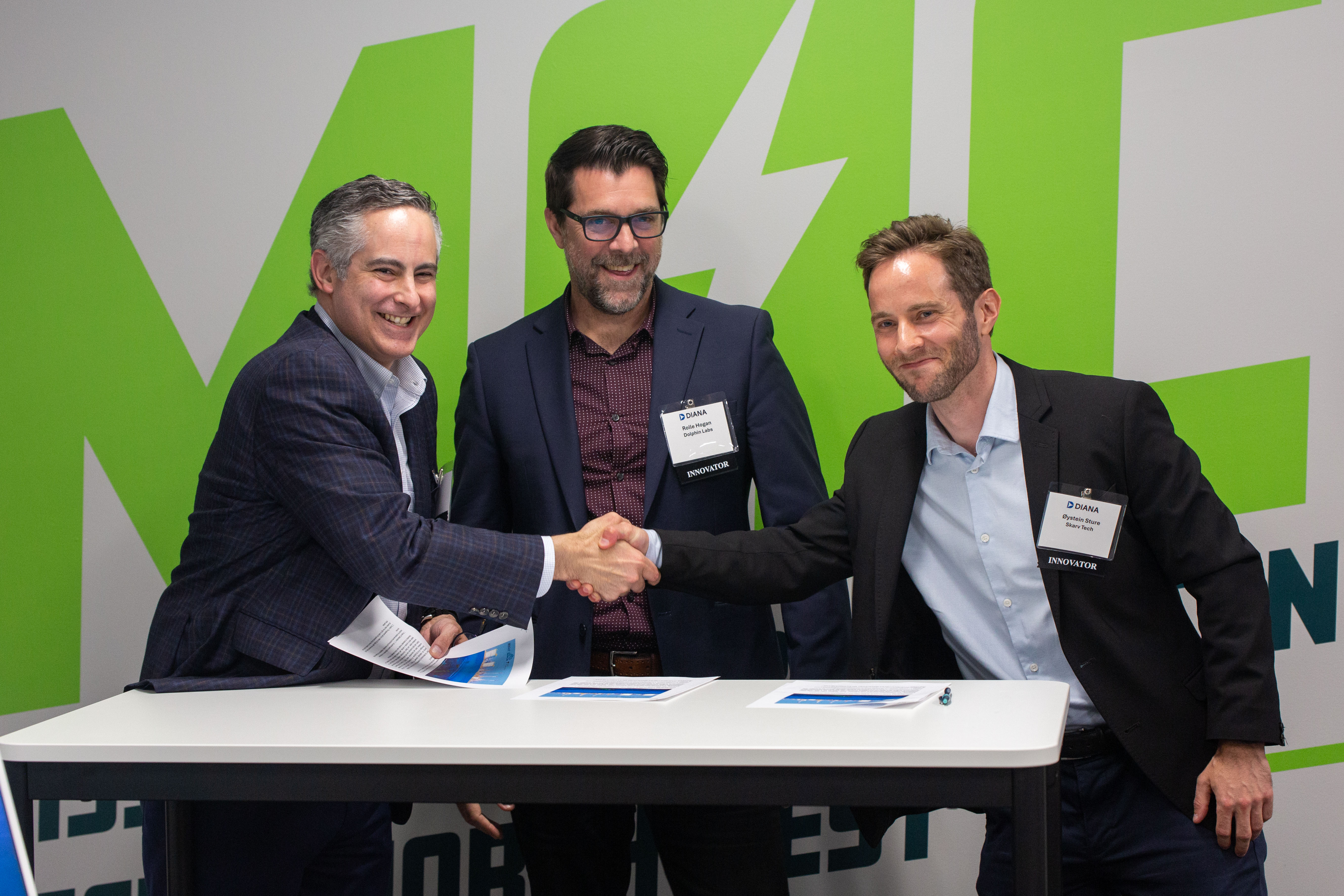
From left to right: Carlos Fonts, CEO of SEADAR, Rolle Hogan, CEO and Co-Founder of Dolphin Labs, and Øystein Sture, Chief Infomation Officer and Co-Founder of Skarv Technologies shook hands after signing an MOU to solidify their companies’ relationship.
“The collaboration and innovation displayed by this cohort serves to strengthen the defense innovation base across the NATO Alliance, which is tasked with protecting more than one billion citizens across 32 member states,” shared Abigail Desjardins, NSIN Venture Portfolio Director and DIU Deputy Director of Global Partnerships. “We are excited to see NATO DIANA, and the NATO innovation community, continue to deliver value to these innovators, to the DoD, and to the alliance.”
NATO DIANA’s Boston and Seattle-based clusters were also supported by MassChallenge and the Pacific Northwest Mission Acceleration Center (PNW MAC), respectively.
Meet the NATO DIANA Cohort
Find information about all the cohort companies, including those who were in clusters outside of North America, here.
About National Security Innovation Network
NSIN is a program office in the U.S. Department of Defense, nested within the Defense Innovation Unit (DIU). We are set up to collaborate with a wide variety of innovators to include universities, researchers, students, entrepreneurs and start-ups. We create opportunities for collaboration across communities and connect those that might not traditionally work in national security. Together, we help drive national security innovation and develop technologies that directly support the individuals responsible for protecting our country.
For more information or interview requests with Team NSIN, please contact us at media@nsin.mil.